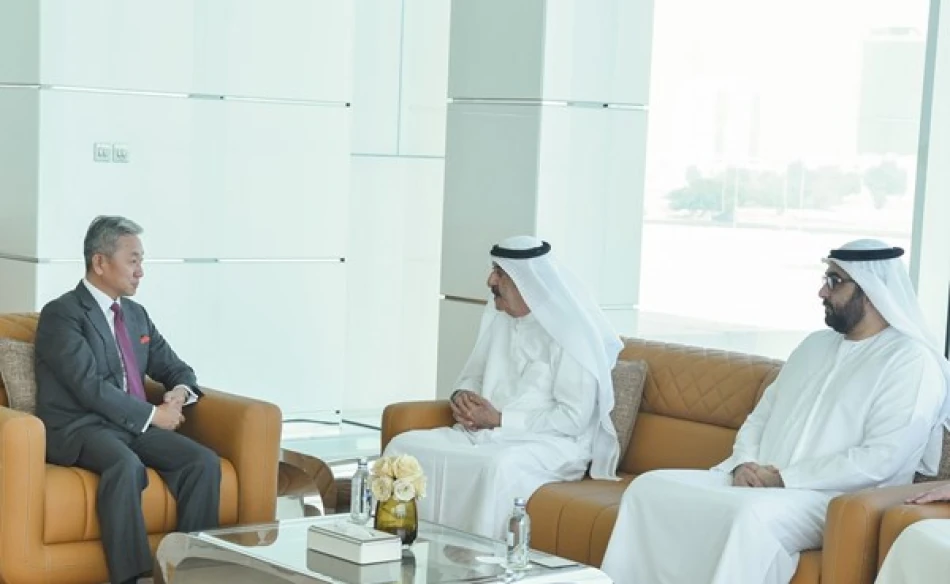
Emirate's Ruler Welcomes Chinese Ambassador to the UAE in Strategic Diplomatic Meeting
UAE-China Diplomatic Ties Strengthen as Umm Al Quwain Ruler Hosts Beijing's Ambassador
The ruler of Umm Al Quwain welcomed China's ambassador to the UAE in a high-level diplomatic meeting that underscores the deepening economic and strategic partnership between the Emirates and Beijing. The encounter highlights how even smaller UAE emirates are positioning themselves as key players in China's Belt and Road Initiative and broader Middle East engagement strategy.
Royal Reception Signals Strategic Priorities
Sheikh Saud bin Rashid Al Mualla, Supreme Council Member and Ruler of Umm Al Quwain, received Chinese Ambassador Chang Yiming at the Emiri Court, accompanied by Crown Prince Sheikh Rashid bin Saud bin Rashid Al Mualla and Deputy Ruler Sheikh Ahmed bin Saud bin Rashid Al Mualla. The presence of the emirate's entire leadership hierarchy demonstrates the significance both sides place on bilateral relations.
The ruler praised the continuous development of UAE-China cooperation across various sectors, reaffirming the Emirates' commitment to strengthening ties with Beijing. This diplomatic courtesy visit reflects a broader trend of Chinese engagement with individual UAE emirates beyond the federal level.
Economic Implications for Regional Trade
Ambassador Chang's praise for Umm Al Quwain's "developmental renaissance and advanced investment infrastructure" suggests potential Chinese interest in the emirate's strategic location along the Arabian Gulf. Despite being the UAE's smallest emirate by population, Umm Al Quwain offers significant logistical advantages for Chinese trade routes connecting Asia with European and African markets.
Strategic Positioning in Gulf Economics
The meeting comes as China seeks to diversify its Middle Eastern partnerships beyond traditional energy relationships. Umm Al Quwain's developing free zones and port facilities could serve Chinese manufacturers looking for regional distribution hubs, particularly as global supply chains continue reshaping post-pandemic.
This diplomatic engagement mirrors similar Chinese outreach across the Gulf, where Beijing has invested heavily in port infrastructure in Saudi Arabia, Oman, and other regional states. The UAE remains China's largest trading partner in the Arab world, with bilateral trade exceeding $70 billion annually.
Broader Geopolitical Context
The high-profile nature of this meeting reflects the UAE's balanced foreign policy approach, maintaining strong relationships with both Eastern and Western powers. While the Emirates deepens ties with China, it simultaneously strengthens partnerships with the United States and European nations.
For investors and regional analysts, such diplomatic exchanges signal continued stability in UAE-China relations despite global tensions. This consistency provides confidence for long-term infrastructure projects and trade agreements that require predictable political frameworks to succeed.
Most Viewed News

 Layla Al Mansoori
Layla Al Mansoori






